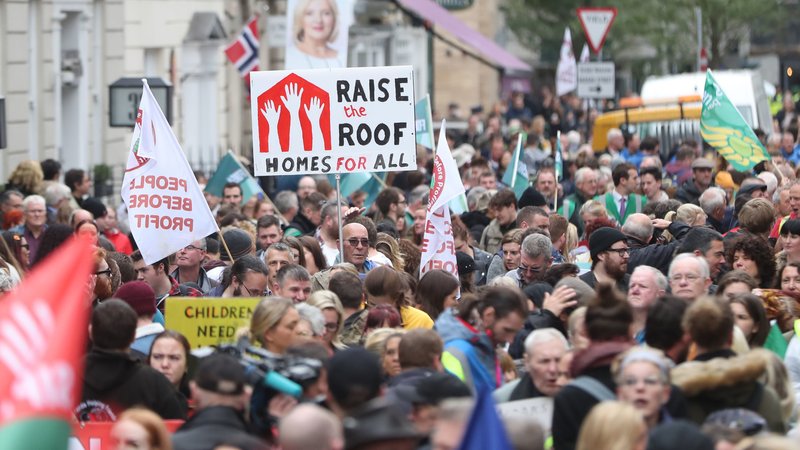By Ollie Bell
The number of young Irish people in their 20s living at home has risen to 47.2% according to research by EU agency Eurofound. Ireland, along with Luxemburg and Romania, have the highest increases in Europe.
While throughout other EU countries there was a 2% increase, Ireland saw a 11% increase. According to the report, after the recession many young people had to move back home as they would be the first ones to lose their jobs due to them having just entered the job market.
Overcrowded homes
The report also states that despite young people having more financial security because they live at home, their well-being was better if they had moved out. Areas such as life satisfaction, satisfaction with family life and optimism about one’s own future were worse if young people lived with their parents, particularly when they live in increasingly overcrowded homes.
This increase comes at no surprise when you consider the government’s inaction on tackling the housing crisis. The selling off of public land to private developers, the refusal to build social housing and relying on the private market to solve the crisis have all contributed to this increase of young people living at home. Even when young people can move out they are faced with high rents and the reality that their landlord can choose to evict them at any time for reasons such as selling the property or renovations.
Rise in anxiety and depression
This generation of young people are the Locked Out Generation; they are locked out of housing and decent, well paid employment. Young people are more likely to work low paid and precarious jobs, often in the hospitality industry. Young women are especially vulerable to sexual harassment when working low-paid and zero-hour contract jobs. This contributes to the rising levels of anxiety and depression.
Rising college fees, high rents and low pay are paired with underfunded mental health services that offer no real support. The housing crisis has a detrimental effect on the mental health of young people today. Being forced to live at home due to lack of social and affordable housing means that young people aren’t given the independence or freedom they need.
Radicalised generation
However, there is a growing radicalisation of young people. Ireland has seen great social progress with Marriage Equality and Repeal and young people are at the forefront of the marches against climate change. This generation of young people are the first to be worse off than the last and there is a growing anger that will only grow.
More and more young people are waking up to the fact that the capitalist system only works for the 1% while the rest of us suffer. This generation must now get organised by building a mass movement against the housing crisis.












